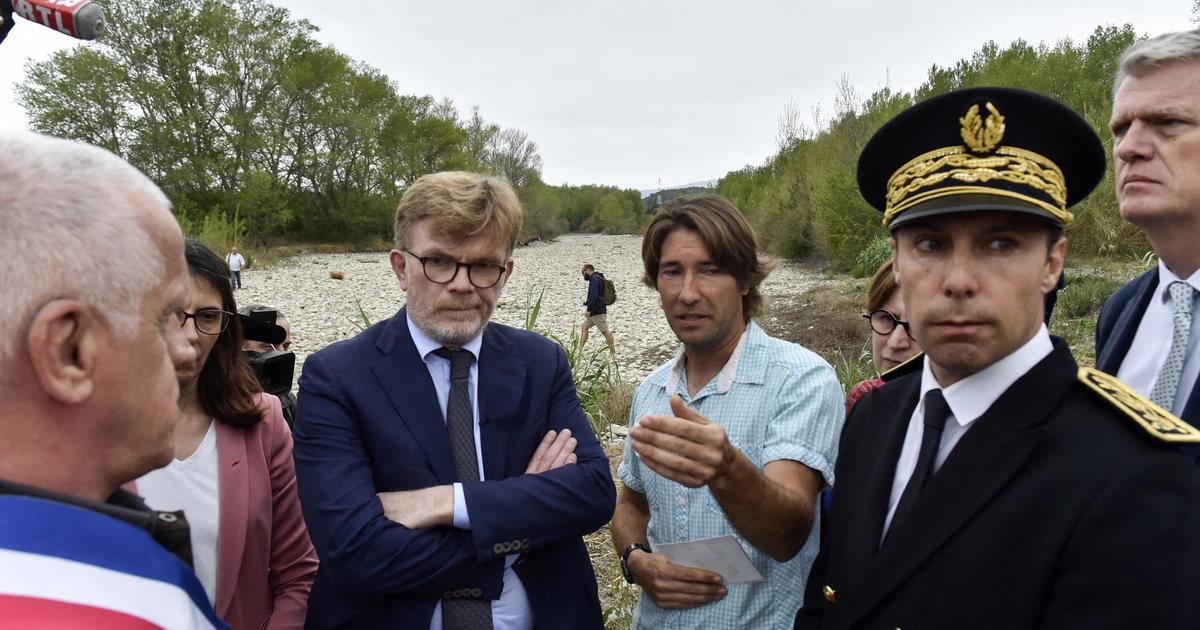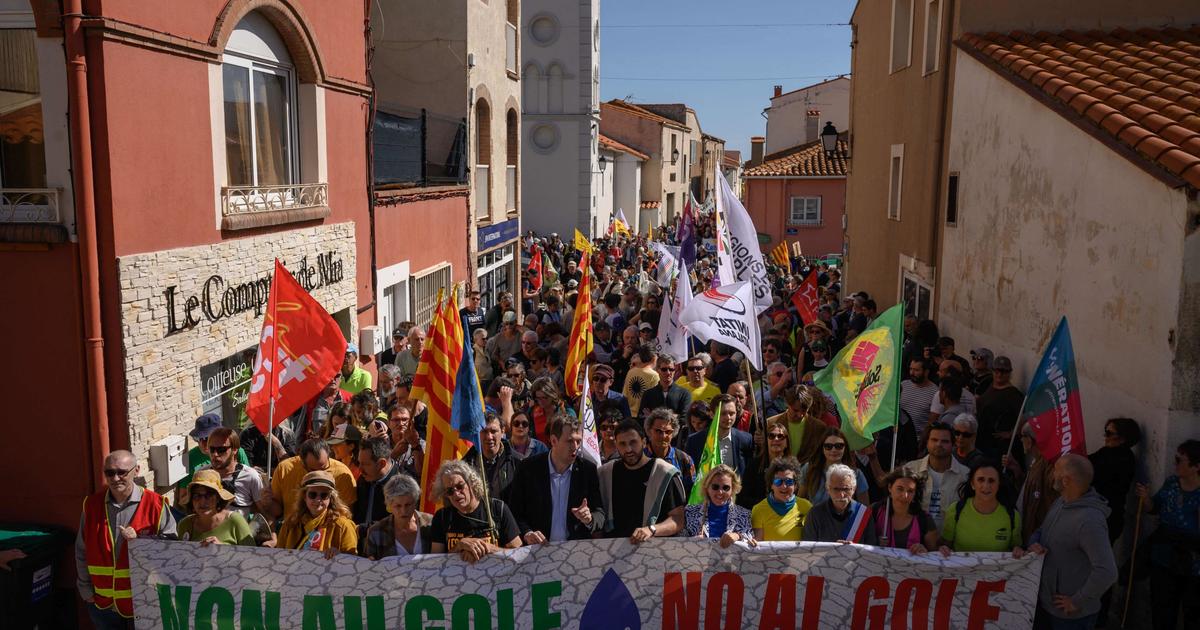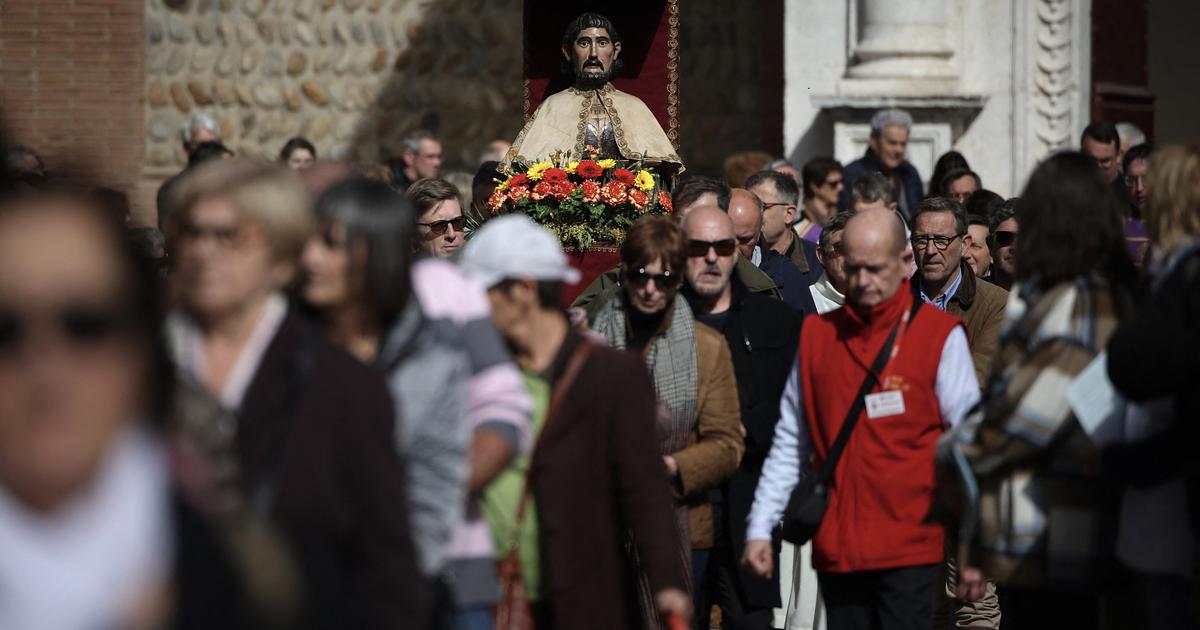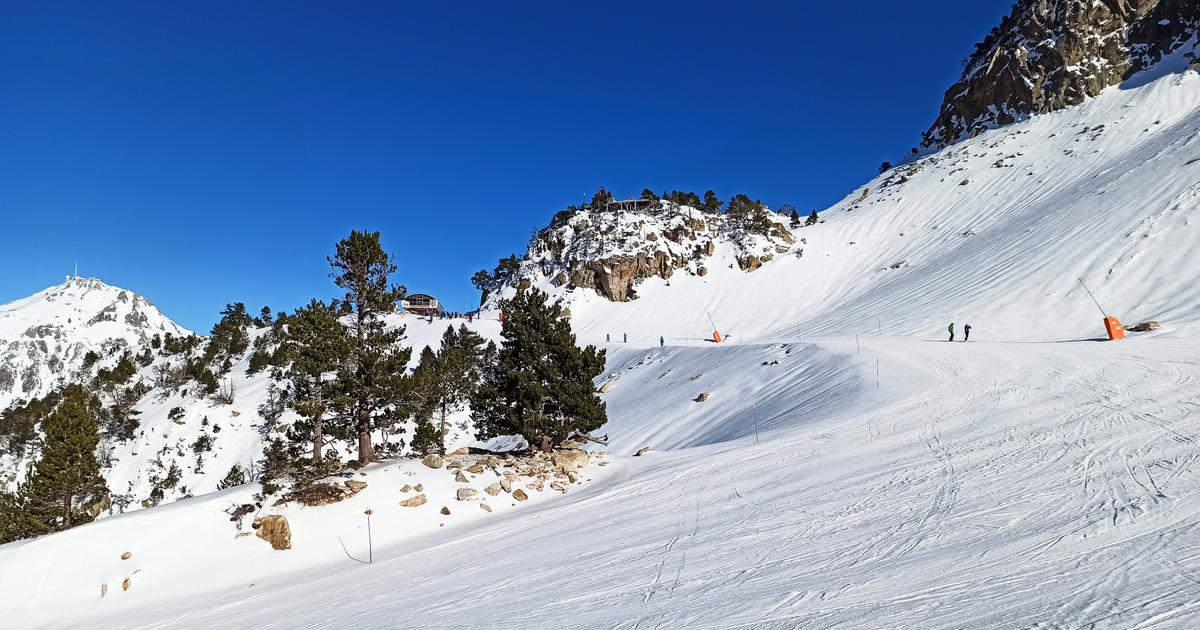Special Envoy toPerpignan (Pyrénées-Orientales),
Rodrigue Furcy is the prefect of Pyrénées-Orientales.
LE FIGARO. - The department of Pyrénées-Orientales is facing a major drought. What is the concrete situation today?
Rodrigue FURCY. - This drought is historic. I do not know if we can say unprecedented, but in any case we have not experienced this since 1959 and the beginning of weather records. It has rained 200 millimeters in Perpignan over the last twelve months. Usually it's between 500 and 600.
See alsoFires, water restrictions: towards a summer of all dangers in the Pyrénées-Orientales?
The drought period began in late spring 2022. For twelve months, we have been facing significant rainfall deficits. This is something we see in the very low water tables, as well as in the rivers. Another example is dams. In principle, they make it possible to start the summer season with a certain level of water in stock and to hold the summer with it. There, fill levels are much lower than usual. On that of Vinça (located about thirty kilometers west of Perpignan, Editor's note), there are usually between 21 and 25 million cubic meters of water. Today, we are at nine.
So you decided to place the majority of the department in a state of crisis related to drought, drastically limiting water withdrawals, was this the only solution?
I think that if I had not made this decision and we had found ourselves in a situation of water supply failure, many people would have wondered: "But what did the prefect do during all these weeks?" tag. Public action is asked to anticipate, to prepare, to be rigorous and also to have the ability to take responsibility, even when it is a little difficult. It is my duty and responsibility to guarantee the essentials, that is to say drinking water, the safety of people, their health ... Clearly, we were at an impasse.
We would have consumed more water at the beginning of the season than our reserves allowed us to consume over the entire season. It's as if your salary fell at the beginning of the month and you consumed everything at ten. Especially since the available stocks are those that will be available until the end of the season. There can always be a good surprise with rain not expected, but fundamentally this should not change. There are 20 municipalities that we think there was a possibility that they would not spend the summer if nothing was done. Of these, seven are even more at risk, but I will not name names.
See alsoSpain supports its farmers and herders victims of drought
I would also like to recall that before the transition to a state of crisis, nothing happened. We first reinforced the measures at the end of February with a territorial mobilization of all actors. We have pushed certain economic sectors, on a voluntary basis, to reduce their water consumption. Depending on the sector and as in tourism, it went from 30 to 70% decrease.
Precisely about tourism, a sector that represents about 35% of the GDP of the Pyrénées-Orientales. The population of the department increases drastically every summer, are you ready to welcome all these people?
Tourism is an integral part of the departmental economy. Hence this work on reducing water consumption with tourism stakeholders At this stage, efforts have been made and there is no reason to ask tourists not to come.
Also, the Union des métiers et des industries de l'hôtellerie (Umih) will carry out communication actions aimed at tourists, who potentially do not know the situation in the department. At the time they arrive or at the time they book for example, to raise their awareness.
While waiting for these tourists, a "water police" is now patrolling the Pyrénées-Orientales, what does it consist of?
It is responsible for carrying out controls on water-related regulations. Rules are made to be enforced. So there are controls, there have always been and there will be controls on the measures we have taken. The water police is composed of members of the French Office for Biodiversity and law enforcement agencies, including municipal police in cases where the town hall has made arrangements.
Currently, we are in prevention and pedagogy. We want everything to be clear on the regulations. In particular, a frequently asked questions will be set up. We also count on the mayors on this, because they are the ones who carry the messages of proximity (a large majority of the municipalities of the Pyrénées-Orientales have signed a charter of commitment "responsibility in the face of drought", editor's note). Then, there are controls that will be carried out under the authority of the public prosecutor and which may give rise to fines, for example on watering or filling swimming pools.
At prioBzeaucoup of professionals were angry at the measures you have taken and do not understand them. What do you want to say to them today?
The agricultural profession did not want to go into crisis, that was very clear. Because it means additional restrictions on water use. Concretely, the cessation of irrigation. Today, all are affected by restrictions, at different levels. There is, of course, an economic stake for the entire agricultural world. There is also a social dimension, because behind these farms are employees, families, who live from agriculture, etc. But we were at an impasse, also for this environment: the volumes of water we had were not sufficient to ensure the minimum irrigation net until the end of the summer.
Read alsoWhy French agriculture is in danger
We worked with the profession to try to salvage what could be saved. By ensuring a kind of minimum flow for the trees and overall a minimum of activity. The aim is to avoid finding oneself in a situation where the farmer loses his harvest - which is unfortunately already the case for many - as well as his trees. These are still extremely fragile and subtle balances. We have tried to find ways to preserve trees, the production tool that is so important for economic activity.
But there is a principle of reality. We are in a situation - admittedly variable depending on the sector - where there is no more water in some places, such as in the Agly valley.
One last point, that of fires. The department was affected by a major forest fire in mid-Apriland the situation looks complex this summer. How do you prepare?
First of all, the transition to a state of crisis related to drought also implies organization and preparation to face all risks to prevent them from occurring. Fire safety is a recurring one in the Mediterranean departments, but it is even more prominent this summer. This is why we activated the summer firefighting devices as of April 1st, with a gradual ramp-up. We have also financed the acquisition of drones to improve the surveillance of massifs, brush clearing operations around villages, etc.
See alsoFires: does the fire season really start "extremely early"?
Very clearly, this year, there will be no risks taken on fire safety - I am thinking in particular of fireworks - because the situation means that we must be extremely careful.











/cloudfront-eu-central-1.images.arcpublishing.com/prisa/KMEYMJKESBAZBE4MRBAM4TGHIQ.jpg)


/cloudfront-eu-central-1.images.arcpublishing.com/prisa/EXJQILQR5QI7OMVRTERD7AEZAU.jpg)
